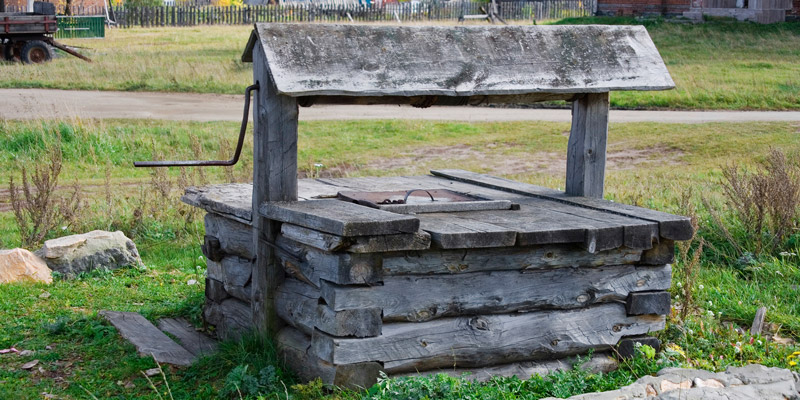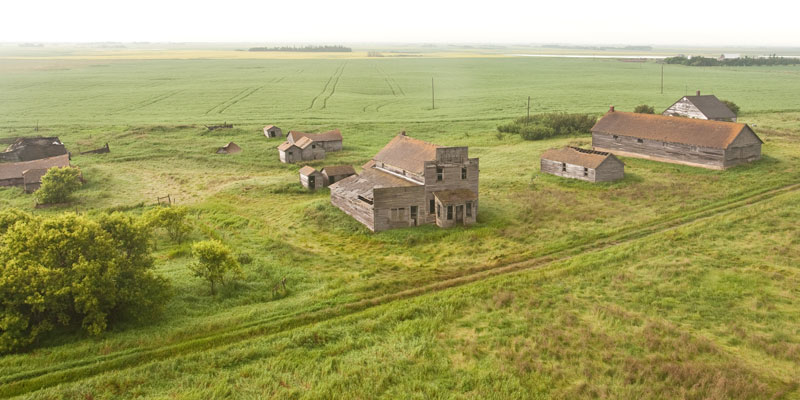Governance for watershed-based source water protection in Canada: A national assessment
Principal Investigator - Rob de Loë, Professor, University of Waterloo, 2008 - 2012

Challenge
Source water protection (SWP) is important for drinking water safety, as well as for ensuring adequate quality and quantity of water for the environment, industry and recreation. The benefits of SWP are numerous. For instance, protection of drinking water sources is significantly less expensive than remediation of contamination. SWP typically involves identifying risks to source waters and implementing strategies to help ensure that the quality and quantity of these waters are not jeopardized.
A major challenge confronting those attempting to protect source waters is ensuring integration with other water and land use management strategies. This is why it is vital to address the many governance challenges associated with integrated planning at the watershed scale. Questions of accountability, responsibility, legitimacy, power, knowledge, capacity and inclusiveness are just some of the difficult issues that arise when attempting to make decisions involving many stakeholders. Balancing the roles of government and non-government actors, finding the right combination of regulatory and non-regulatory tools, and achieving coordination across different sectors and scales are some of the major challenges that this project addresses.
Dr. de Loë’s team sought to improve understanding of key knowledge gaps related to water governance, and to ultimately improve source water protection processes and outcomes in Canada.
Project
Using a collaborative, partnership‐based approach, Dr. de Loë and his team were able to gain valuable insights into the wide variety of strategies and activities taking place across Canada to protect source water.
This project defined and addressed three critical knowledge gaps relating to the implementation of an integrated approach to governance which is essential to developing effective Source Water Protection (SWP) governance:
1) What factors determine the appropriate balance in roles and responsibilities between government and non‐government actors at various scales and in particular places?
2) How, in the context of shared responsibilities for implementation, can different approaches to SWP (e.g. regulatory and non‐regulatory) be combined effectively?
3) How can SWP be integrated effectively with land use planning, watershed management and other related institutional considerations?
To encourage policy learning across different jurisdictions, the team offered numerous workshops for target users. For example, a combined national practitioner and researcher workshop in May 2012 used an innovative approach involving a pre-workshop survey of practitioners to identify challenges and solutions from their perspective; a workshop informed by the pre-workshop survey and designed around the issues they identified; and a post-workshop survey that permitted the practitioner community to evaluate workshop findings. Participants indicated that they found the process extremely helpful, and that it filled a gap.
Outputs
Researchers have participated and contributed to the following workshops and meetings:
- Governance for Source Water Protection in Canada: Challenges and Solutions (May 2012)
- Partner outreach meetings (New Brunswick and Alberta, 2012)
- Sharing Water Challenges and Solutions: Experiences of First Nations Communities (April 2010)
- Workshop on Governance for Source Water Protection (May 2010)
- Exploring the role of the Natural Resource Sectors in Source Water Protection Governance (February 2010)
- First Nations and Source Waters (November 2009)
- Water Caucus workshop on Governance (June 2011)
- Partner outreach meetings (New Brunswick, Alberta, and Manitoba, 2009-2010)
- Transboundary Dialogue on Climate Change and the Great Lakes (March 2009)
The project led to the development of a website www.governanceforwater.ca
This project has resulted in scholarly journal publications:
- Plummer, R., Velaniškis, J., de Grosbois, D., Kreutzwiser, R.D., and de Loë, R. 2010. The Development of new environmental policies and processes in response to a crisis: the case of the multiple barrier approach for safe
- Plummer, R., de Grosbois, D., de Loë, R.C., and Velaniškis, J. 2011. Probing the integration of land use and watershed planning in a shifting governance regime. Water Resources Research. 47: W09502, doi:10.1029/2010WR010213.
- A full list of publications can be found at: http://www.governanceforwater.ca/publications
Outcomes
- This project has fostered a number of requests for partnerships from groups on a national to local scale. These partnerships have led to the development of discussion papers and reports for the National Roundtable for the Environment and Economy (NRTEE), Agriculture and Agri-Food Canada (AAFC), Conservation Ontario, and the Lake Windermere Ambassadors.
- Discussion papers and reports translate the research findings in a way that is directly applicable to their problem contexts, and are helping to guide policy-making decisions in the organizations of the research partners.
- The results of this project have helped end-user AAFC with a clearer picture of how best to engage farmers in water governance, ultimately supporting AAFC’s “Growing Forward II” strategy.
- Practitioner partners outside of government have reported concrete shifts in their policy positions based on working with the team. For example, Source Water Protection Committees in Ontario are currently addressing implementation and monitoring questions.
- Changes in decision-making processes regarding the implementation and monitoring of Source Water Protection policies in Ontario.




